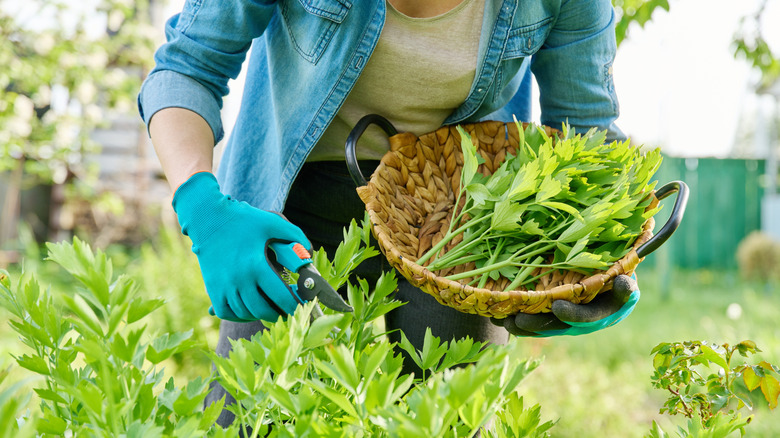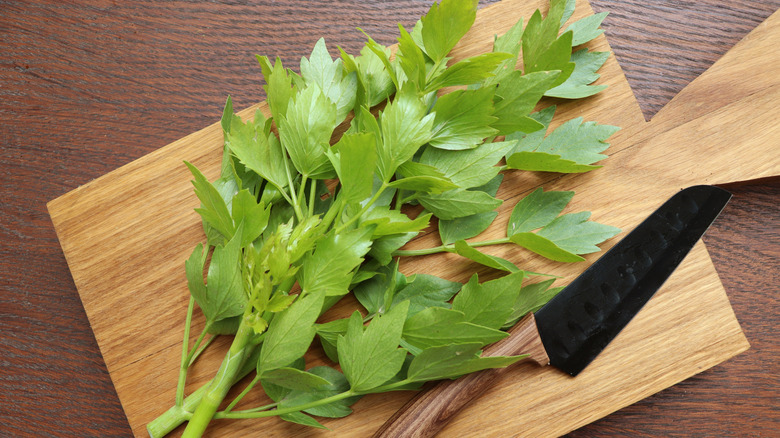The Underrated Herb You'll Wish You Started Growing In Your Garden Sooner
If you've ever wished for a low-maintenance plant that brings bold flavor, pollinators, and structure to your garden, one underrated herb is likely missing from your beds. Often mistaken for an ornamental plant or overlooked in favor of celery, lovage (Levisticum officinale W.D.J. Koch) is a cold-hardy herb that deserves a permanent place in edible landscapes. Native to the Eastern Mediterranean region, this celery-scented herb has an array of culinary and medicinal uses, and it comes with a bonus: A simple cultivation process.
Lovage is the answer for herb gardeners who are looking for a perennial alternative to celery, parsley, or dill. It reliably returns each spring, and its leaves, seeds, stems, flowers, and roots are all edible. As a bonus, the plant even resists disease, drought, and deer. For these reasons and more, it's no wonder why lovage is one of the more popular herbs that works as a perfect filler plant to include in your garden.
However, lovage's appeal extends well beyond its flavor. This herb supports local pollinators, and it's perfect for smart gardeners to plant next to their tomatoes to entice beneficial insects. It's remarkably resilient — tolerating a range of soil types and moisture conditions — and can reach 6 feet tall with little fuss. Plus, the more you harvest, the more it grows, making lovage a reliable staple for cooks and gardeners alike.
How to get bold flavor and lasting rewards from your lovage herb
Lovage's foliage emerges in spring and resembles flat-leaf parsley, only with a robust celery flavor that's slightly sweeter. It thrives in full sun to partial shade and grows best in moist, well-drained soil. It's also an herb that you only need to plant once to have it return each year, which makes it beautifully low maintenance.
Its adaptability is part of what makes it so underrated. Lovage can be propagated from seed or through root division and can technically survive with only occasional harvesting and cutting back. As a culinary herb, it excels in broths, stews, and salads. Lovage's seeds can be used in bread or ground like celery seed, and its stems can be blanched and treated like a vegetable. There's no end in sight to lovage's uses, either, with roots that can be roasted or steeped into tea. Lovage also contains vitamins C and B complex along with beneficial compounds like quercetin, which support immune and respiratory health.
As with many strong herbs, moderation is key in the kitchen, for lovage's flavor can quickly overpower if overused. Gardeners should also be aware that lovage contains volatile oils that act as a diuretic. While this can be helpful for kidney support, the herb is not recommended for those with certain health conditions or for animals. Still, with proper care and some culinary curiosity, lovage outshines more common herbs, and you'll wish that you'd grown it sooner.

